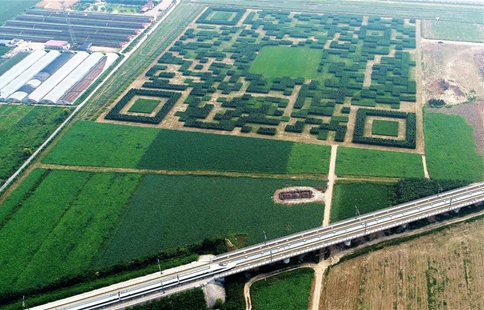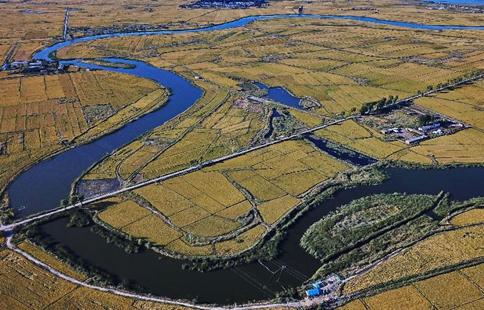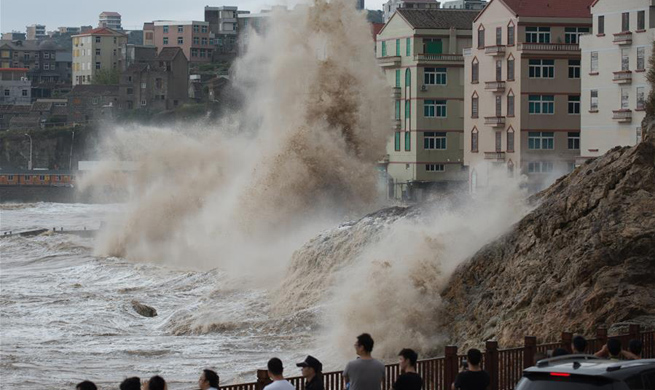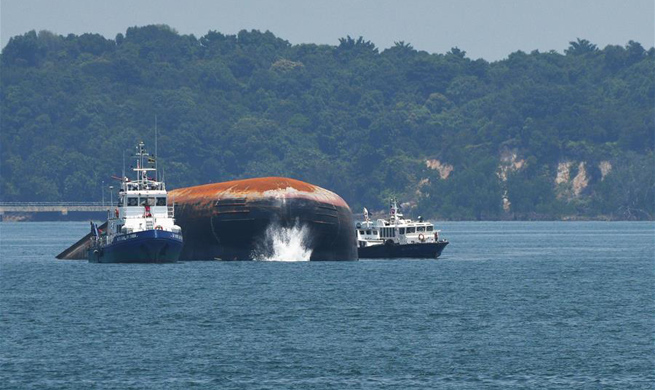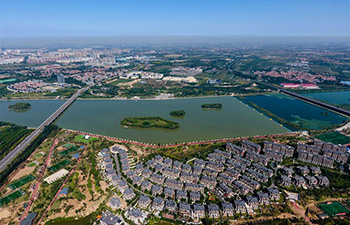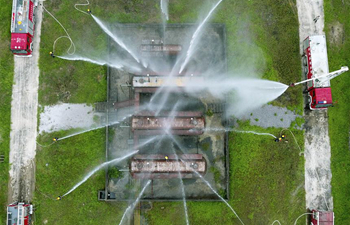ADDIS ABABA, Sept. 14 (Xinhua) -- Experts and policymakers have urged African countries to modernize weather, water, and climate information services to promote climate resilient economic growth across the continent.
Jointly hosted by the African Union (AU) and the Ethiopian government at the AU headquarters in Addis Ababa from September 12 to 15, the first African Ministerial Conference on Meteorology (AMCOMET) Forum envisages building consensus on modernizing information services in Africa's meteorology sector.
According to figures from the World Bank, the economic cost of recorded weather-related disasters in Africa in the last 20 years is estimated at 10 billion U.S. dollars. The Bank further projected such forms of disasters to increase in frequency and intensity, mainly due to the increasing climate variability across the globe.
Representatives from various African countries, academia, private sector leaders, and international organizations, who are attending the forum, argued that capacity building endeavors would help as an impetus for long-term disaster risk management and climate resilient development in the continent.
Josefa Sacko, AUC Rural Economy and Agriculture Commissioner, also stressed the importance that better policies and strategies have to further enhance access to information about forecasting weather and climate conditions.
Over 2,000 natural disasters, the majority of which resulted from drought-related famine, have killed more than 880,000 and affected 460 million people in Africa since 1970, according to the AU.
Floods are most frequent, accounting for 42 percent of economic damages by contrast, while droughts affect 78 percent of the population, it was indicated.
Experts and policymakers, who are taking part at the continental forum in Addis Ababa, argued that the need for comprehensive risk management system is the key for reducing the impact of climate change and its adverse effects imposed against Africa's development endeavors.
"Unless comprehensive risk management is put in place, these risks will draw and threaten peace and development in Africa. This is possible only through end-to-end modernization for hydromet services as well as systems and services," Sacko affirmed.
Sacko also expressed the role the Africa regional strategy for disaster risk reduction could play on the matter, an initiative launched in 2011 by the AU with an aim to contribute towards attaining sustainable development and poverty reduction by integrating disaster risk reduction into development programs.
Sileshi Bekele, Ethiopian Minister of Water, Irrigation and Electricity, also lauded the purpose of the forum, which brings together technical as well as ministerial participants to provide guidance on how existing weather, water and climate information strategies and programs can be strengthened.
"This would help to promote sustainable development, adaptation planning and climate resilient growth," Bekele said.
He also expressed the Ethiopian government's Climate Resilient Green Economy Strategy as an exemplary initiative to be copied by fellow African countries with regards to developing climate resilient economic growth.
The CRGE strategic plan, launched ahead of the 17th Conference of Parties to the UN Framework Convention on Climate Change (COP17) held in Durban South Africa in 2011, required an estimated 150 billion U.S. dollars in its quest to realize a climate-resilient low carbon emission middle income economy by 2025.
The forum, which brings together African governments, academia, private sector leaders, and international organizations, is expected to build consensus on and momentum for modernizing weather, water, and climate information services and data.








